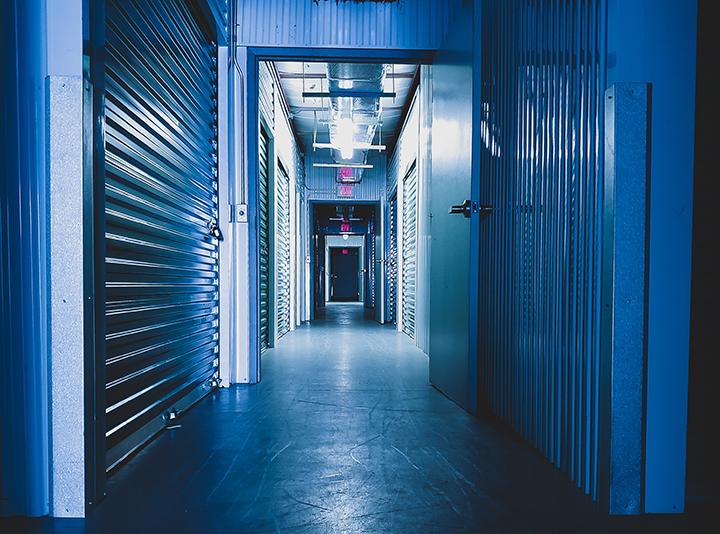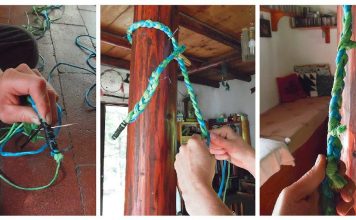| Issue #83 • September/October, 2003 |
Buying and selling is a time honored way of making a living. However, like any profession, success in merchandising requires following some fundamental rules. The most basic of these is to obtain items of good quality that people will actually want to purchase, and to acquire them at a low enough cost to ensure adequate profit. Once this challenge is met, the entrepreneur’s success is largely assured.
Fortunately, across the United States a huge supply of desirable products exists for low prices. Furniture, electronics, appliances, clothing, books, art, toys, tools, and a plethora of other goodies can be had for a fraction of their true value. The purchaser can use these items themselves, or resell them for a generous markup. Startup costs are minimal: a van or pickup truck (a trailer towed by a car will do) and a few hundred dollars are all that is required to begin your own business.
Finding merchandise
I am not talking about raiding dumpsters, joining wholesale clubs, or fencing stolen merchandise. I am discussing public storage buildings, which you can find in virtually any community coast to coast. Millions of individuals and businesses use these facilities to store all sorts of goods. Many of them eventually fall behind on their monthly rental bills. After an extended period of non-payment the storage building owner can legally claim the items. He or she will often hold periodic public auctions to sell off the goods in order to recoup a portion of their lost rent.
It is important to remember that the USA has become a nation of pack rats. Consumers acquire all sorts of things that they will never need or even use. Impulse purchases, seasonal items, unwanted giftsall these and more end up under lock and key for extended periods. Seniors selling a large home and moving to a smaller one realize they have tons of unwanted possessions. Singles or couples buy a new sofa, DVD player, or television and store the old one. Children grow up and leave home, and the parents hold on to their clothing, old musical instruments, books, and clothing for sentimental reasons. Businesses upgrade their computer systems frequently, and the original PCs are seen as obsolete; they are put “on ice.” Ours is truly a throw away society.
|
The result of all this financial fickleness is that large quantities of perfectly good things end up in rented storage buildings. Then death, financial hardship, or just plain apathy or forgetfulness kick in, and the items are forgotten. This is where the real opportunities for you come in. The units range in size from twenty five square feet up to several hundred. Some are even climate controlled, and may contain freezers full of fresh meat or other perishable goods. Chances are, there is such a place near you right now, packed with all sorts of treasures waiting for you to claim them.
The first step in taking advantage of this opportunity is learning when the auctions in your area take place. Get a copy of the local Yellow Pages directory and look under “storage facilities.” Contact the offices. Make sure you do not call storage building dealers, the people who actually sell the little sheds you see in back yards nationwide. You want the businesses that rent their own units on their own property.
Ask for the owner or manager, and tell them you want to know when the next auction is going to be. Some places hold them on a regular basis, and can give you the exact date and time. Others hold them “as need arises,” but do not currently have one planned. Put these on a call back list, and check with them once a month or so. Still others put a notice in the newspaper when the time for the auction approaches. Learn what paper they use and watch its classifieds.
On the day of the auction, show up a few minutes before it begins, ready to do some heavy lifting. A pickup or other large truck is ideal. A van is great, but there might be some head room problems. A bigger car can work if you use a utility trailer as well. You will also need work gloves, tarps, or blankets to cover the items in case of rain, and, if possible, hand trucks and/or a partner. Of course you will also need a place to store your purchases for a while until you sell them.
Bidding at auctions
Bidding at auctions is an art form unto itself. You may wish to just watch others at the first two or three you attend, just to get a feel for how much items go for. Keep in mind that your primary goal is resale. Don’t bid $300 on a building full of goods that you can only make 50 bucks on. A good idea is to check local flea markets, yard sales, classifieds, salvage stores, E-bay, etc., to see what different items go for.
The auctioneer will open the buildings one at a time to let the bidders see what they contain. If most or all of the goods are in boxes, then he or she will break these open and display their contents to the crowd. Bring a pad and pen and try to estimate the approximate resale value of the merchandise. Then place your highest bid at no more than 50 percent of that amount. If in doubt about the profitability of the contents, then don’t bid; there is always another day, and you don’t want to get stuck with tons of unwanted junk filling up your storage area.
As discussed before, the variety of things you can find at these auctions is astounding. Appliances, furniture, electronics, books, clothes, toys, pet supplies, CDs, records and cassettes, VHS/DVD movies, and boxes filled with knickknacks are common finds. Cash, jewelry, gold and silver coins, even automobiles have been found. You want to look the stuff over as thoroughly as possible to make sure that rain has not leaked in and destroyed things. If you smell mildew or see evidence of water damage, then pass that building up. Mice and other rodents sometimes get in, but they rarely do much damage, except to clothing and stored food. (Speaking of clothing, check the pockets and linings of any you get. Old people hide money in them. Wads of cash have been found stuffed in shoes and mattresses). Storage buildings with shingle roofs and heavy, tight-fitting doors do the best job of preserving stored items.
Sorting, repairing
Okay, the auction is over, and you were the high bidder on one or more lots. You can usually claim your merchandise on the spot. Start going through your acquisitions immediately. You want to separate the good stuff from the absolute junk, which you will haul to the dump. One strategy is to break open the boxes and hold up nice finds while other bidders are still milling about. Quite often they will make purchases from you right there.
Sometimes you will obtain things that need a little work. This is where a working knowledge of electronics, appliance repair, and/or woodworking comes in handy. You may locate a color television that only needs an inexpensive part to get it working again. Lawn mowers, garden tillers, and the like are often cast aside as “broke,” when all they need is a spark plug or other minor repair. A clothes dryer may only require a new lint filter to run like new. Scuffed or dirty furniture can be cleaned and polished. Learn to see past the dust and dents to discern an item’s true value. Many people have furnished their own homes this way, and saved hundreds if not thousands of dollars doing so.
Store your stuff carefully. Stack it neatly, cover it with tarps or blankets, make sure the weather will not get in, and lay out some poison in case vermin get in. Write down your inventory, noting general condition and what you think you can get for each item.
Re-selling
Now you can look at selling your goods. The venues for doing this are numerous. Newspaper ads are a good bet for larger or pricier items. People scan the classifieds every day looking for bargains. In addition, many local radio stations have weekly “swap shops,” usually on weekend mornings where you can call in, tell what you have for sale, and leave your phone number for interested parties. Call nearby broadcasters to find out about these. Sometimes television stations offer the same service.
Flea markets, also called “swap meets,” are great places to sell things. Check your local area for them. The Official Guide To U.S. Flea Markets by Kitty Werner is a nationwide listing of markets. The office will rent you one or more tables to display your merchandise on; fees range from three or four dollars a day per table up to fifteen or twenty for one inside a building with climate control. Check with the manager for prices and procedures for dealers. At some markets you can just show up the day of the sale and claim your own space; others require you to pay a few days in advance. Visit the market on a sale day before you bring your goods out; make sure there is good customer flow.
|
Be sure and bring plenty of change, bags for the purchases (available at any grocery store; just offer them a few bucks for 40 or 50 of their sacks), a comfortable chair to sit in, and a cooler with drinks and some food. A beach umbrella can keep you cool in warm months. Bring a book or portable radio to help the time pass. Covering your tables with tarps, blankets, or heavy paper makes your display more appealing to the eye. Wide varieties of rather colorful folks both sell and buy at the markets, and you should meet some interesting people. For more information, check out How To Make Cash Money Selling At Swap Meets, Flea Markets, Etc. by Jordan Cooper, available from Loompanics Unlimited (www.loompanics.com).
Yard or garage sales are another way to rake in the dough. If you have a home with a good sized yard or a carport or garage, this option can work for you. Make sure you have plenty of change for your customers, as well as bags for their purchases. Advertise the upcoming sale in your local paper, put up signs in the neighborhood stating the day and address of the sale, and be outside early, ready to do businessyard sale fans are early risers. The old pros at this business set their merchandise out the night before, and cover it with tarps, so they do not have to set up the morning of the sale.
In many rural areas and small towns, retail auctions are a favorite form of entertainment. Dealers bring truck loads of products they have bought wholesale elsewhere and put them up for bid one at a time. Forget any images you may have of rich people wearing fancy clothing and buying rare antiques or Kennedy memorabilia. These sales are frequented by working class and country folk, the same types you will see at the flea market.
You can make a hefty profit by selling at these auctions, but you need to know what you are doing. Find out when and where they are held by checking your Yellow Pages, local papers, or just asking around. Go several times before you decide to sell. Watch the bidders and the auctioneer. Talk to the manager and find out what the terms are; usually the house will get a portion of whatever money you make. Retail auctions can be great fun as well as lucrative.
In many parts of the country it is legal to set up an impromptu store front along the roadside, in front of abandoned stores or in the hinterlands of large parking lots. Cops will not hassle you as long as no one complains. In the south it is common to see people selling produce, clothing, decorator rugs, stuffed animals, or other goods right off the back of their trucks or out of a van. The northeastern states seem much less tolerant of this form of free enterprise, however. The rule of thumb is this: if you see others doing it without being persecuted, then you can do it too. Gas stations and convenience stores that have gone out of business are great locales. Bring your stuff and set it out for customers to see. Leave plenty of parking room, and expect many people to drive past your setup while checking out the goods.
Other venues include pawn shops, web pages, and collectors. It is amazing what people will collect. Campaign buttons, old books, walking sticks, teddy bears, shaving razors, beer mugs, and even prepaid calling cards have their enthusiasts. Read a few books on antiques and collectibles to become conversant on the subject. Internet sites like E-bay are great as well.
No matter how great a sales person you are, you will eventually end up with some goods that just will not move. You can often sell these in bulk to other dealers at a low price. Charities like the Salvation Army and Goodwill will give you a receipt for donated items that you can use to reduce your taxes.
America is a fantastic place to live, with wealth literally overflowing its containers. It is quite possible to live off the fat of the land, even in these days. Storage building auctions offer fantastic opportunities for the entrepreneur. I should know; I have been benefiting from them for years. Now you can too.

















How is the market for storage goods selling 20 years later?